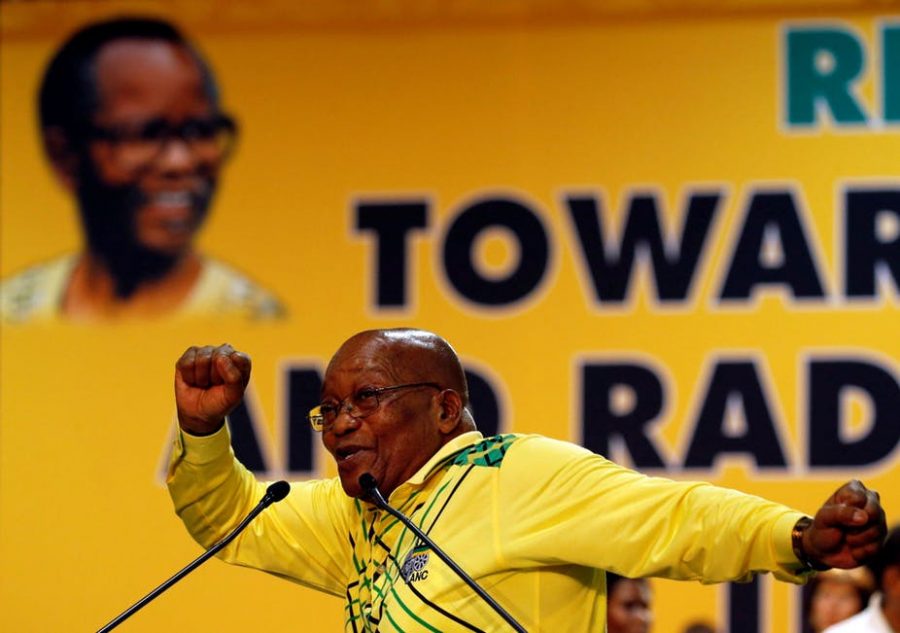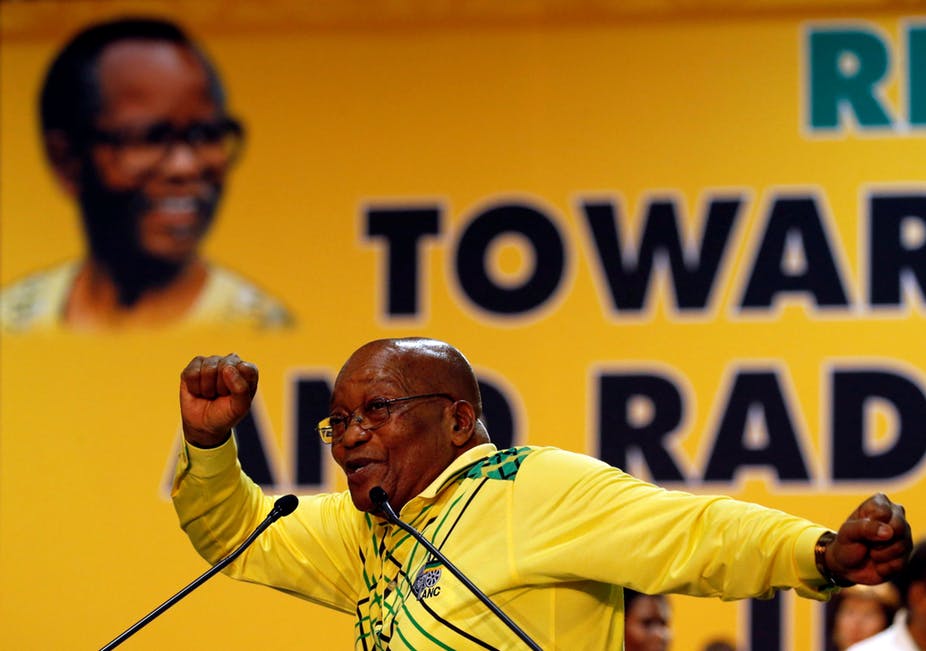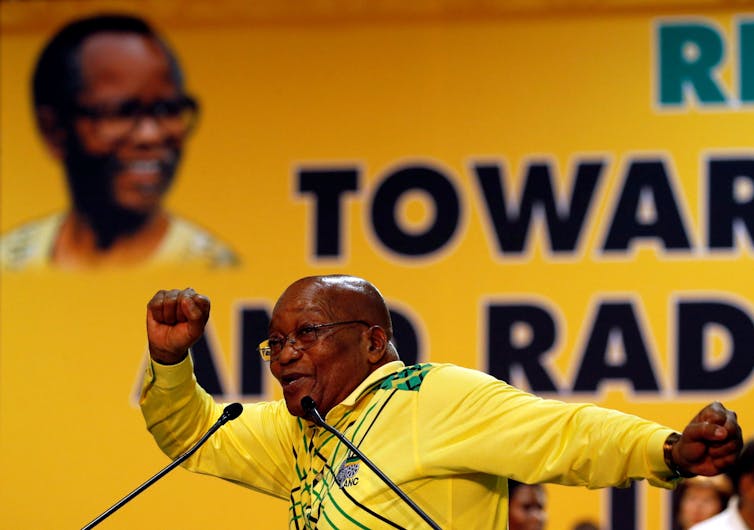
Vintage Zuma Delivers a Vengeful Swansong, Devoid of Any Responsibility
The hope was that in opening the 54th National Conference of the African National Congress (ANC), South Africa’s President Jacob Zuma would rise to the occasion, seize the moment of his last address as party president with honesty and leave something worthy of history. For posterity to cherish. It sounded as though he was taking […]

The hope was that in opening the 54th National Conference of the African National Congress (ANC), South Africa’s President Jacob Zuma would rise to the occasion, seize the moment of his last address as party president with honesty and leave something worthy of history. For posterity to cherish.

It sounded as though he was taking the bull by the horns when he referred to slate politics as the function of ANC factionalism, which he acknowledged had fractured the governing party, including corrupting its systems and processes. Slate politics are the reason for internecine contests for leadership positions in the ANC, which, as he correctly pointed out, rob the ANC of good leadership.
But, in the end, his narcissistic streak shaped his swansong. It was largely couched in aspirational rather than diagnostic terms. For a political report of a leader whose 10-year tenure was coming to an end, it left much to be desired.
He claimed that he was leaving behind a stronger ANC, a statement he could only make if he’s suffering from delusions of grandeur, or because he’s indulging in self-gratification. Which ever it was, it exposed the dishonesty of the political report he subsequently delivered, which was cluttered with rhetorical ploys and lacked a coherent theme for the august event. In truth, the divisions in the ANC are at their worst under him. So is its governing Tripartite Alliance – with the South African Communist Party and labour federation Cosatu – that it leads.
An attack on democracy
Zuma missed the purpose of a valedictory address – to guide the future in the wake of leadership changes. Instead, he became vengeful, taking issue with what he termed ill-discipline in the organisation. Here he was referring to members who take the ANC to court for violating its own constitution and processes. He suggested that they should be dismissed from the organisation immediately.
This is a strange way of dealing with issues, particularly for a president in a constitutional democracy who spent half of his life selflessly fighting for a more just system of organising society. The idea that someone’s membership of an organisation be immediately terminated when they take it to court to protect their rights is at variance with the principle of the supremacy of the constitution.
Zuma’s suggestion violates the right to external recourse for those aggrieved by internal organisational processes. That it’s even entertained by some in the leadership of the ANC demonstrates the extent of the crisis under Zuma.
This is because ideas such as these pose a danger to the party’s foundational values – of unity, non-racialism, non-sexism and democracy – as well as to the future of democracy in the country. That is because the ANC, despite its waning electoral performance, remains politically dominant. Thus, what happens inside it ultimately affects the running of the country, hence it’s imperative internal party democracy be entrenched in the ANC.
Had Zuma looked objectively and honestly into what led some members to take the ANC to court, his report would have perhaps managed to get to the core of the morass.
Factional till the end
Zuma also squandered the last opportunity he had to remove himself from petty factional politics of the ANC and assert himself as a unifier and a statesman. This was his chance to echo the voice of Oliver Tambo, the revered leader of the ANC who is attributed with holding the organisation together during its turbulent years as a banned organisation.
But he blew it by making a point of graciously thanking three senior members of the ANC who are leaders of the factions behind Nkosazana Dlamini-Zuma’s presidential campaign. These were the ANC Women’s League President Bathabile Dlamini, ANC Youth’s League Collen Maine, and ANC military veterans leader Kebby Maphatsoe.
On top of this, his political report lacked the valedictory message of hope for the future. It tinkered at the edges, and largely misrepresented the reality about the state of the ANC. Instead, he fanned the flames of revenge, particularly against those who have consistently tried to hold him accountable.
He made references to corruption, but deflected attention from his alleged implication in it. He set out to create the impression that South Africans are outraged only about corruption in the public sector, not what’s happening in the private sector. A veiled retort to those who have questioned his moral credentials and ethical leadership was that: if you don’t talk about corruption in the private sector, you shouldn’t talk about it in the public sector.
And rather than denouncing slate politics and factionalism, he stuck to lamenting their existence. I believe that the only reason he mentioned them at all was because they have led to splinter groups that have affected the ANC “quantitatively and qualitatively” . If slate politics hadn’t led to the current malaise, I doubt he would have made any reference to organisational maladies, which have in fact been spawned and sustained by his leadership over the past 10 years.
Zuma has bequeathed the ANC (and the country) a highly divided party, one that is factionalised and a threat to its own existence. Even when history gave him the opportunity to apologise for the mess his leadership has left the country in, the vintage Zuma didn’t want to take responsibility.
![]() It is now left to those picking up the baton to take on the challenging task of returning the ANC to its foundational values of selflessness and service and its stature as a leader of society.
It is now left to those picking up the baton to take on the challenging task of returning the ANC to its foundational values of selflessness and service and its stature as a leader of society.
Mashupye Herbert Maserumule, Professor of Public Affairs, Tshwane University of Technology
This article was originally published on The Conversation. Read the original article.
